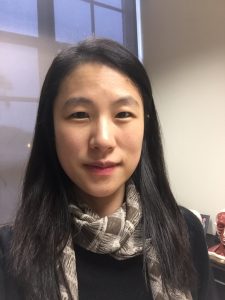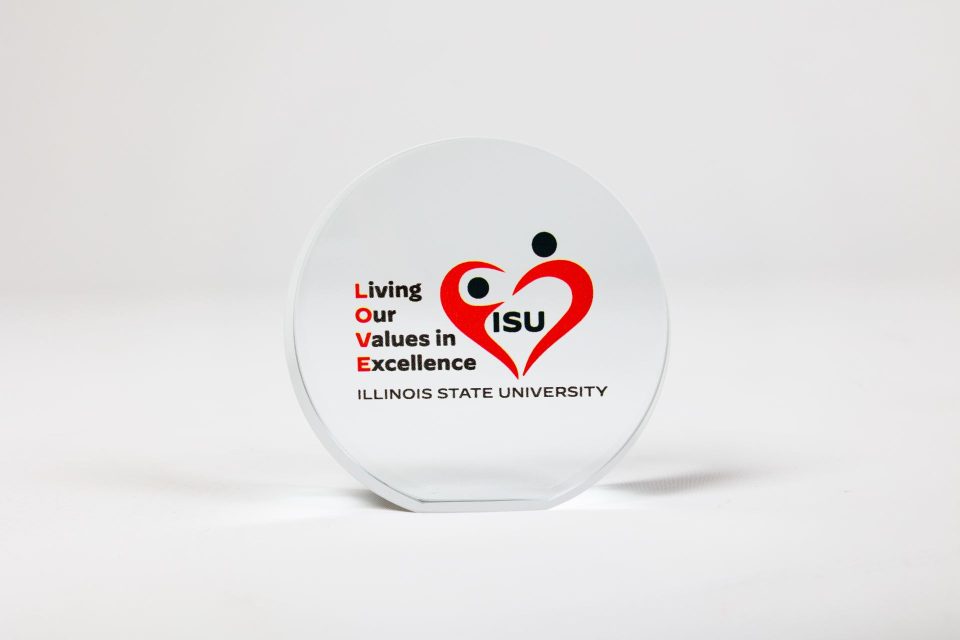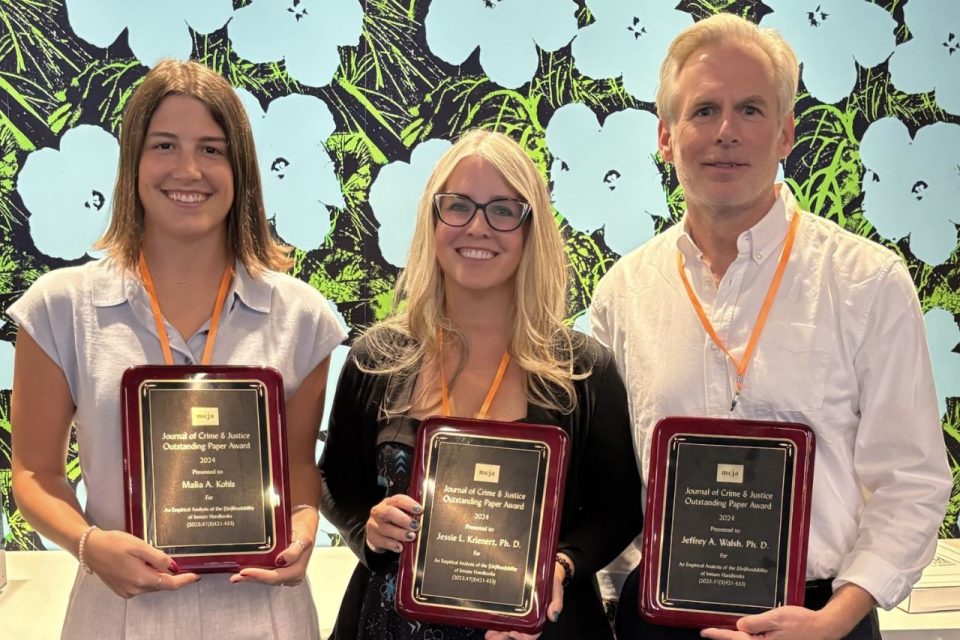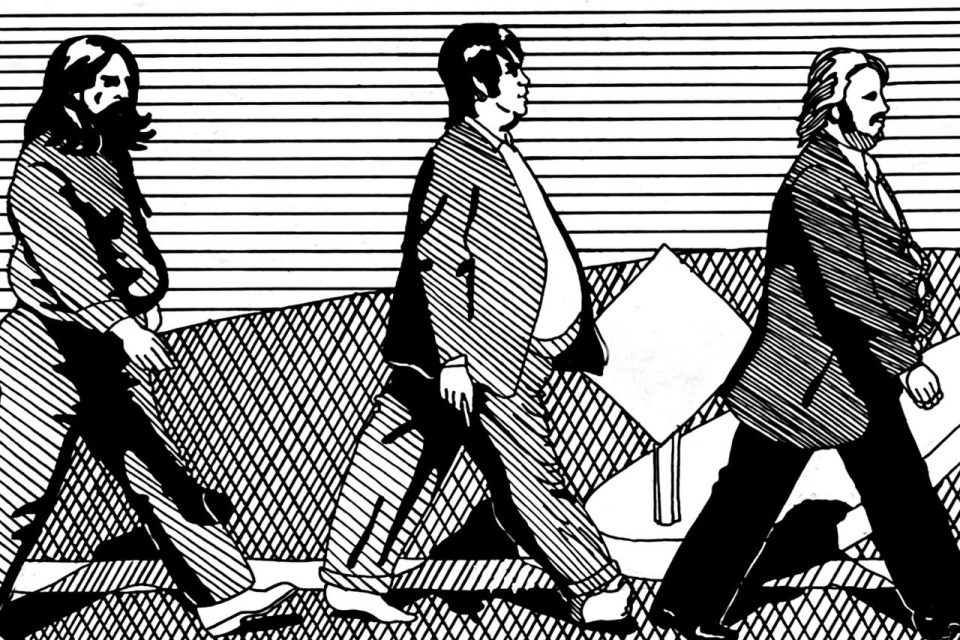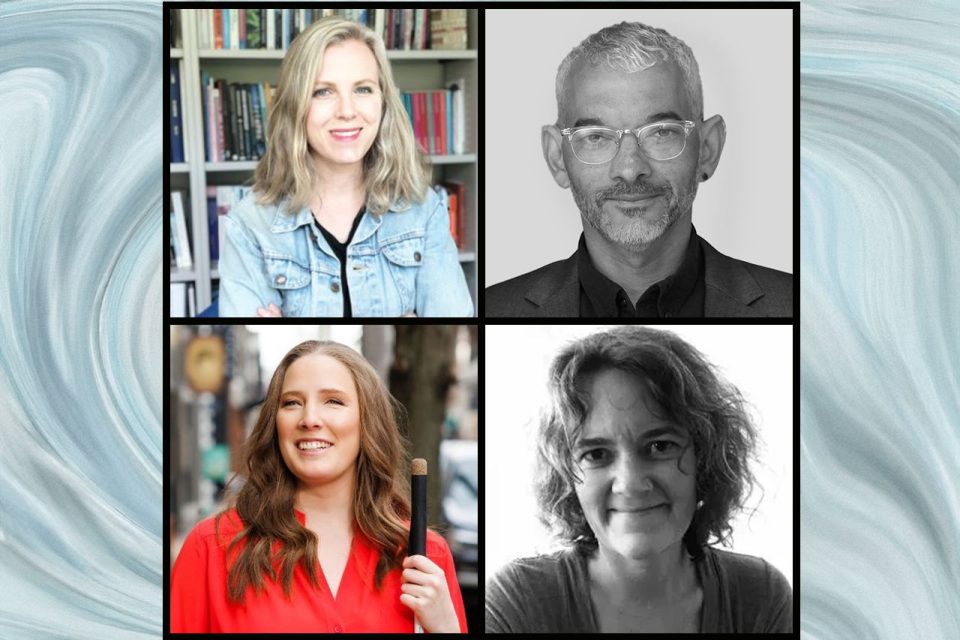CSD Research Briefs: Issue 4
This is our fourth issue of the CSD Research Briefs, which summarizes our academic and clinical faculty members’ latest projects, publications, and presentations related to audiology and speech-language pathology.
In this issue, Drs. McLoddy Kadyamusuma, Shraddha Shende, Jennine Harvey, Taeok Park, and Ciera Lorio share their publications and presentations from summer through fall 2024. Relevant links are provided when available, so our readers can learn more. We welcome you to reach out to our faculty members if you would like further information or a copy of their published articles.
Dr. McLoddy Kadyamusuma
One of Dr. McLoddy Kadyamusuma’s primary research interests is language processing in healthy and neurologically impaired individuals who speak two or more languages (bi/multilingual). His research line focuses on Shona and English as the main languages of study and how speakers of these languages interact with their languages, specifically in the Zimbabwean context. Kadyamusuma’s most recent publication focused on tense processing in Shona speakers. This study examined the proficiency of Shona speakers in reading perfect grammatical sentences of Shona in two different time forms of present and past and whether they could detect the differences, and sentences with violations to the tense that were supposed to be used in relation to the time reference established by the previous adverb. The findings from this study indicated that, overall, Shona speakers found the time reference violations to a recent temporal context more difficult to process than those with a remote past temporal context violated by a present tense. Additionally, the young adult Shona speakers’ performance was unexpected when processing Shona sentences under time constraints; their poor performance across the different tested conditions was explained to be due to difficulties in processing the sentences under time constraints. These time-induced difficulties when reading Shona sentences resulted in failure to consistently detect errors in sentences with grammatical errors and to accept well-formed sentences.
Dr. Shraddha Shende
Dr. Shraddha Shende’s overarching research goal is to delineate the link between aging, hearing loss, and cognition. Age-related hearing loss is a highly prevalent condition and has been linked to an increased risk of cognitive decline.
Cognitive Changes in Age-Related Hearing Loss
Using event-related encephalography (EEG), Shende and colleagues’ recent research examined the neurophysiological changes underlying two cognitive processes: inhibitory control and value-directed strategic processing. Published in Proceedings of the Ninth International Conference on Neuroscience and Cognitive Brain Information, the findings of this proceeding suggest alterations in neurophysiological mechanisms underlying inhibitory control in those with mild unaided age-related hearing loss. Similarly, another study published in Frontiers in Neuroscience found evidence for brain oscillatory changes tied to strategic processing in individuals with mild untreated age-related hearing loss.
In addition to documenting neural changes, Shende’s recent work has also shown behavioral changes in older adults with age-related hearing loss. These works were presented in November at the Gerontological Society of America in Seattle. Shende’s oral presentation examined behavioral changes in cognitive processes of inhibitory control and conflict monitoring in individuals with and without age-related hearing loss. This preliminary study not only found changes in both these cognitive processes in those with hearing loss but also found that these cognitive processes influence speech recognition in complex situations even in those with mild hearing loss. Finally, Shende’s poster presentation examined the use of the Montreal Cognitive Assessment (MoCA), a commonly used cognitive screening tool, and found worse MoCA scores in the hearing loss group relative to the normal hearing group.
Shende, S.A., & Mudar, R.A. (2024). Neurophysiological changes underlying inhibitory control in mild age-related hearing loss. Proceedings of The Ninth International Conference on Neuroscience and Cognitive Brain Information, 9, 1-3. ISBN: 978-1-68558-127-5.
Shende, S.A, & Mudar, R.A. (2024, November). Conflict monitoring and inhibitory control in older adults with age-related hearing loss. Oral presentation by S.A.S at the Gerontological Society of America Conference, Seattle.
Shende, S.A, & Mudar, R.A. (2024, November). Using the Montreal Cognitive Assessment in mild age-related hearing loss. Poster presented by S.A.S at the Gerontological Society of America Conference, Seattle.
Cognitive Changes in Older Adults
Shende’s secondary line of research examines aging and cognition. Along with her colleagues, Shende’s recent co-authored paper detailed the methods and baseline characteristics for a social engagement technology-based randomized controlled trial for older adults. Additionally, she co-authored a poster presentation at the Gerontological Society of America, which examined resting state EEG in older adults with typical cognitive aging using a novel analyses method.
Lydon, E. A., Mois, G., Shende, S. A., Myers, D., Danilovich, M. K., Rogers, W. A., & Mudar, R. A. (2024). Methods and baseline characteristics for a social engagement technology-based randomized controlled trial for older adults. Contemporary Clinical Trials Communications, 101308.
Warren, T.S., Ashrafi, J., Shende, S.A., Lydon, E.A., & Mudar, R.A. (2024, November). Resting state electroencephalography and inhibitory control in cognitively unimpaired older adults. Poster presented by T.S.W at the Gerontological Society of America Conference, Seattle.
Dr. Jennine Harvey-Northrop
Dr. Jennine Harvey-Northrop is part of an interdisciplinary team investigating the efficacy of virtual reality (VR) environments for assessing individuals’ aging-in-place readiness and providing speech-language pathology (SLP) based rehabilitation services. They seek to understand the potential of VR technology and innovative applications in evidence-based practice in aging-related cognitive intervention, clinical training, and pedagogy.

Harvey-Northrop and her team had three virtual presentations at the American Speech-Language-Hearing Association Convention in Seattle. Two of the three presentations discussed pilot research investigating semantic feature analysis delivered in traditional versus VR environments for younger and older adults with normal cognitive aging and adults with communication disorders. These studies provided an example of an adaptable, immersive VR environment for use in SLP intervention. The third study presented discussed research investigating interdisciplinary digital health and learning across SLP, technology, and interior design collaborators for VR environments in rehabilitation and aging-in-place practices. Researchers are interested in applying these data to inform future studies in interdisciplinary pedagogy for technology applications in healthcare curriculum, including rehabilitation and aging-in-place practices.
Harvey-Northrop, J., Cuellar, M., Chang, I., & Fonseca Pereira, G. (2024, December). Virtual reality and adults with communication disorders: A pilot study in semantic feature analysis training. Convention of the American Speech-Language-Hearing Association, Seattle.
Harvey-Northrop, J., Chang, I., Fonseca Pereira, G., & Cuellar, M. (2024, December). Interdisciplinary digital health and learning survey: Implications for technology in speech-language pathology training. Convention of the American Speech-Language-Hearing Association, Seattle.
Harvey-Northrop, J., Cuellar, M., Chang, I., Fonseca Pereira, G.(2024, December). Virtual reality & traumatic brain injury: Implications for semantic feature analysis training. Convention of the American Speech-Language-Hearing Association, Seattle.
Dr. Taeok Park
Dr. Taeok Park presented a poster at the Original Lilly Conference in Oxford, Ohio. This presentation focused on the effects of hands-on experiential learning to facilitate speech-language pathology students’ knowledge and skills about biofeedback of swallowing rehabilitation. Hands-on practices in simulation-based learning provide opportunities for students or clinicians to integrate knowledge and clinical skills into clinical practice in a safe environment. Graduate students showed significant improvement in their knowledge, competence, and preparedness with the application of biofeedback for swallowing disorders after the hands-on experiential learning opportunity. This study will help instructors develop teaching and learning methods for students in the health profession.
Park, T., & Kim, Y. (2024, November). Hands-on experiential learning for graduate clinicians. Poster presentation at the Original Lilly Conference, Oxford, Ohio.
Dr. Ciera Lorio

Dr. Ciera Lorio recently had a one-hour seminar at the American Speech-Language-Hearing Association (ASHA) Convention in Seattle. This presentation focused on the use of family routines as interaction contexts in early intervention sessions. Lorio and her colleagues offered practical strategies that speech-language pathologists can use to learn about families’ routines and support caregivers in identifying specific routines that are the best fit for their child’s communication targets. For more information on family routines in early intervention, see this recent publication from Lorio and her colleagues (Delehanty et al., 2024). Lorio has also had two additional publications since summer 2024. One of these publications, with a colleague from the University of Maine, focused on the collection and analysis of narrative language samples of children who are deaf/hard-of-hearing (Puhlman et al., 2024). The other publication was based on an Illinois State University speech-language pathology alum’s master’s thesis, which focused on the shared book reading experiences of young children that use augmentative and alternative communication (AAC) devices (Wence et al., 2024).
Romano, M., Delehanty, A., Brown, J., Lorio, C., & Woods, J. (2024, December). Practical strategies to help caregivers choose family routines as interventions contexts in early intervention. Oral seminar presentation presented at the Annual Convention of the American Speech-Language-Hearing Association, Seattle.
Congratulations to all, and thank you for representing our department well at professional conferences! #RedbirdProud
Latest Publications
- Kristen Bernas Honored as First LOVE Award Recipient for Exemplary CollaborationIllinois State University proudly recognizes Kristen Bernas as the inaugural recipient of the Living Our Values in Excellence (LOVE) Award, a distinction that celebrates individuals who embody the University’s core values as outlined in Excellence by Design 2024–2030, the University’s strategic plan. Kristen, an office administrator in the Department of Accounting, was selected for her
- Illinois State professors and alum honored with Outstanding Paper Award for groundbreaking study on inmate handbook readabilityDr. Jessie Krienert and Dr. Jeffrey Walsh from Illinois State University, along with alum Malia Kohls, won the 2025 Outstanding Paper Award from the Midwestern Criminal Justice Association.
- Make a lasting impact by mentoring a Redbird studentCareer Services invites you to join the Alumni Mentor Network, where your experience becomes a powerful tool for student success.
- Board of Trustees action items, October 17, 2025The Board of Trustees of Illinois State University approved several resolutions at its regular meeting on October 17, 2025.
- Queer Talks to explore Girth & Mirth clubs November 19Queer Coalition, Illinois State's sponsored LGBTQIA+ faculty, staff, and graduate student affinity group, invites the University community to attend a lunchtime presentation November 19 by Women's, Gender, and Sexuality Studies Program Interim Director Dr. Jason Whitesel on the history and visual representation of Girth & Mirth clubs from their advent in 1970s San Francisco through their last hurrah in the early 2000s. This event will take place from 11:30 a.m.-1 p.m. in 401 Stevenson Hall.
- Creatively critical tech virtual fall 2025 speaker seriesThis fall, the Creatively Critical Tech: Research + Practice + Design virtual speaker series will host four leading scholars whose work advances innovative and inclusive research, art, design, and practice with emerging technologies and media.










